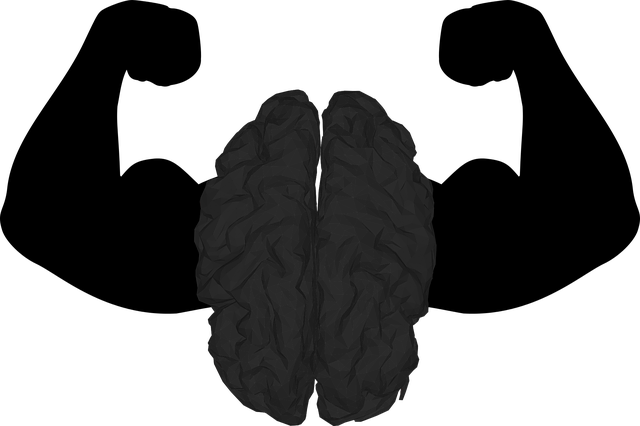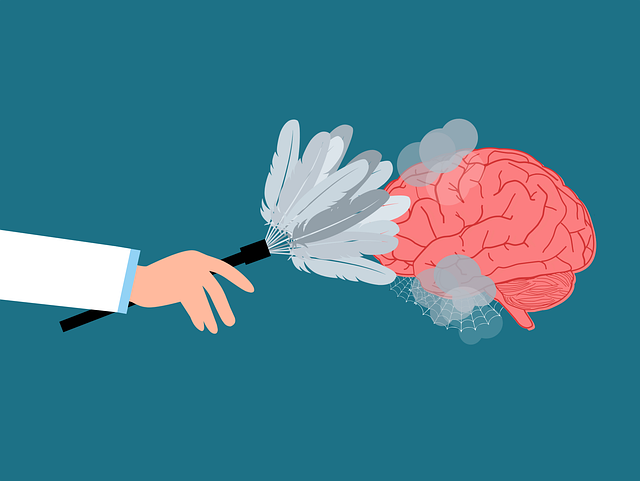Crisis Intervention Teams (CITs), led by professionals from various fields including law enforcement, medical services, and mental health experts, aim to swiftly address mental health crises and prevent harm. Lafayette Anger Management Therapy emphasizes CIT training, teaching de-escalation, active listening, mindfulness, cultural sensitivity, role-playing, and stress management techniques. Their holistic approach not only benefits immediate crisis settings but also fosters long-term emotional resilience. Ongoing support through regular practice sessions, trauma support services, peer mentoring, Mental Wellness Journaling, and self-esteem improvement ensures CITs remain prepared, compassionate, and effective in high-pressure situations.
In today’s challenging social landscape, effective crisis intervention teams (CITs) are crucial in managing high-risk situations. This article delves into the essential training programs that empower CIT members to respond promptly and effectively. We explore the key components of successful training, highlighting the Lafayette Anger Management Therapy Approach—a comprehensive program proven to mitigate anger-related crises. Additionally, we discuss the importance of ongoing support for CITs to ensure a symphony of preparation and response in navigating turbulent situations.
- Understanding Crisis Intervention Teams: Their Role and Importance
- Key Components of Effective Crisis Intervention Team Training
- The Lafayette Anger Management Therapy Approach: A Comprehensive Program
- Implementation and Continuous Support for Successful Crisis Response
Understanding Crisis Intervention Teams: Their Role and Importance

In many communities, Crisis Intervention Teams (CITs) play a vital role in addressing mental health crises and ensuring public safety. These specialized teams typically consist of trained professionals from various backgrounds, including law enforcement, emergency medical services, and mental health specialists. The primary goal of CITs is to provide immediate, effective, and compassionate support to individuals experiencing severe emotional distress or a mental health crisis. By de-escalating high-risk situations, CIT members help divert people from potentially harmful environments and reduce the need for involuntary hospitalization.
At Lafayette Anger Management Therapy, we recognize the significance of CIT training in equipping individuals with the necessary skills to handle crisis situations. Our programs emphasize the development of coping skills, stress reduction methods, and resilience building as essential components of crisis intervention. By fostering a comprehensive understanding of mental health crises and providing evidence-based strategies, these training initiatives empower team members to make informed decisions, offer appropriate support, and promote positive outcomes for those in need.
Key Components of Effective Crisis Intervention Team Training

Effective crisis intervention team (CIT) training programs are multifaceted and crucial for equipping professionals with the skills to handle high-pressure situations. Key components include comprehensive instruction in de-escalation techniques, active listening, and emotional regulation strategies such as mindfulness meditation. By fostering a culture of empathy and cultural sensitivity in mental healthcare practice, CIT members become better equipped to navigate diverse scenarios and connect with individuals from various backgrounds.
The training should also incorporate practical exercises like role-playing and scenario simulations to enhance decision-making abilities under stress. Mental wellness journaling exercise guidance can be a valuable tool for participants to reflect on their experiences, process challenging emotions, and develop personal coping mechanisms. Programs that integrate these elements ensure that CIT teams are prepared, compassionate, and capable of providing timely and effective interventions in crisis situations, such as those managed by Lafayette Anger Management Therapy.
The Lafayette Anger Management Therapy Approach: A Comprehensive Program

The Lafayette Anger Management Therapy (LAMT) Approach stands out as a comprehensive crisis intervention team training program focused on empowering individuals to manage and reduce anger-related issues. This innovative approach delves into the root causes of anger, offering a multi-faceted strategy to enhance emotional regulation and promote emotional well-being.
Through interactive sessions, LAMT equips participants with practical techniques for stress management, enabling them to navigate challenging situations with composure. By fostering a deeper understanding of anger triggers and providing effective coping mechanisms, the program facilitates personal growth and improves interpersonal relationships. This holistic method not only benefits individuals in crisis settings but also encourages long-term emotional resilience.
Implementation and Continuous Support for Successful Crisis Response

Successful crisis intervention team (CIT) training requires ongoing implementation and continuous support to ensure effective response. After initial training, regular practice sessions are crucial to reinforce skills and adapt them to real-life scenarios. This includes role-playing exercises that simulate various crises, allowing team members to apply their knowledge in a controlled environment. At Lafayette Anger Management Therapy, for instance, CIT teams can benefit from specialized programs that integrate Trauma Support Services, fostering an understanding of complex trauma dynamics.
Mentor and peer support play a significant role in sustaining the program’s success. Experienced therapists or counselors can offer guidance, providing insights into effective de-escalation techniques and emotional regulation strategies. Additionally, encouraging team members to engage in Mental Wellness Journaling Exercise Guidance can help them process their experiences, reflect on challenges, and celebrate victories. This self-care practice enhances resilience and promotes personal growth, contributing to improved performance during crisis interventions. Moreover, focusing on Self-Esteem Improvement within the training curriculum empowers CIT members to build confidence in their abilities, fostering a positive mindset that is invaluable during high-pressure situations.
Crisis intervention team training is a vital asset in equipping organizations with the tools to handle crises effectively. By incorporating comprehensive programs like the Lafayette Anger Management Therapy Approach, teams can develop essential skills for managing high-stress situations. Continuous support and implementation of these training methods ensure that organizations are prepared to navigate challenging scenarios, fostering a safer and more resilient environment for all stakeholders.














